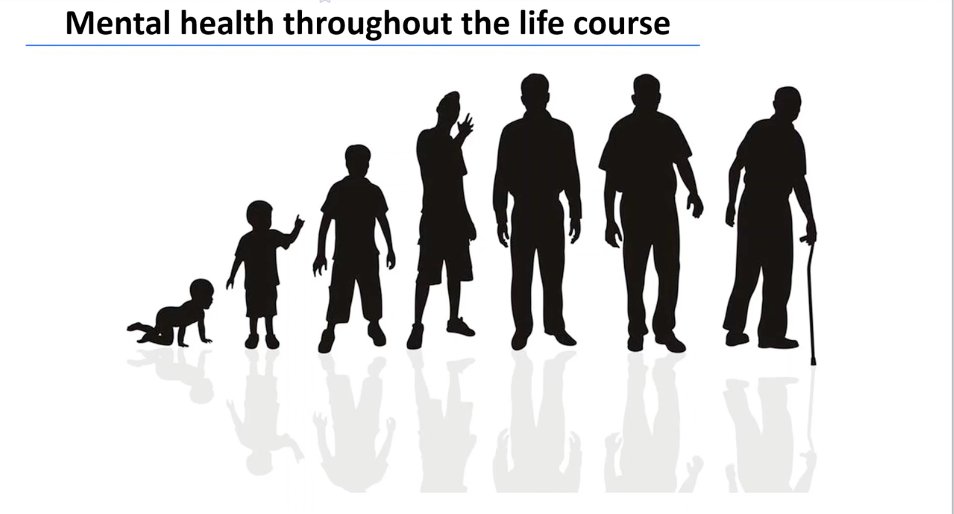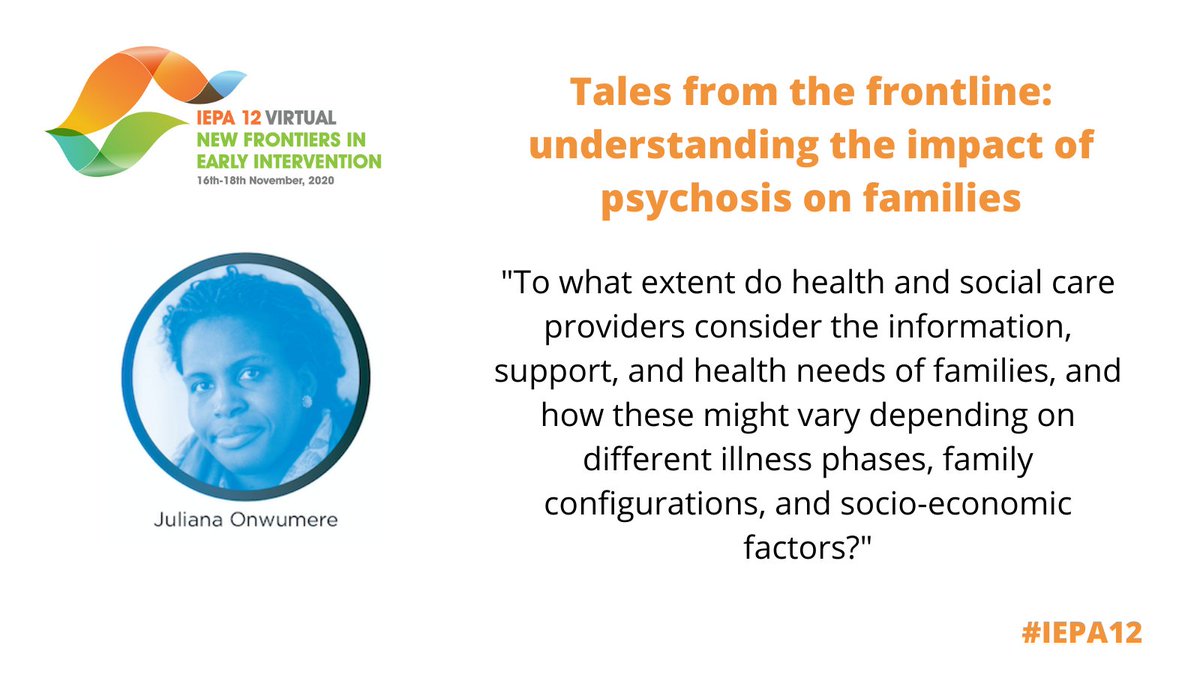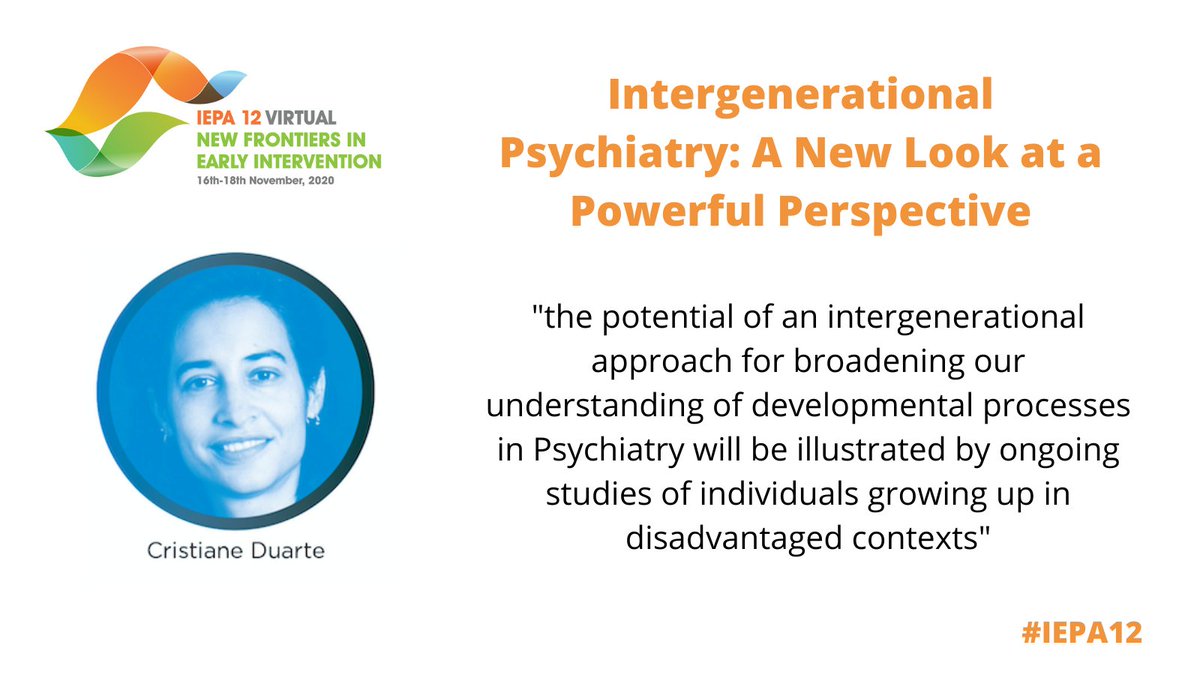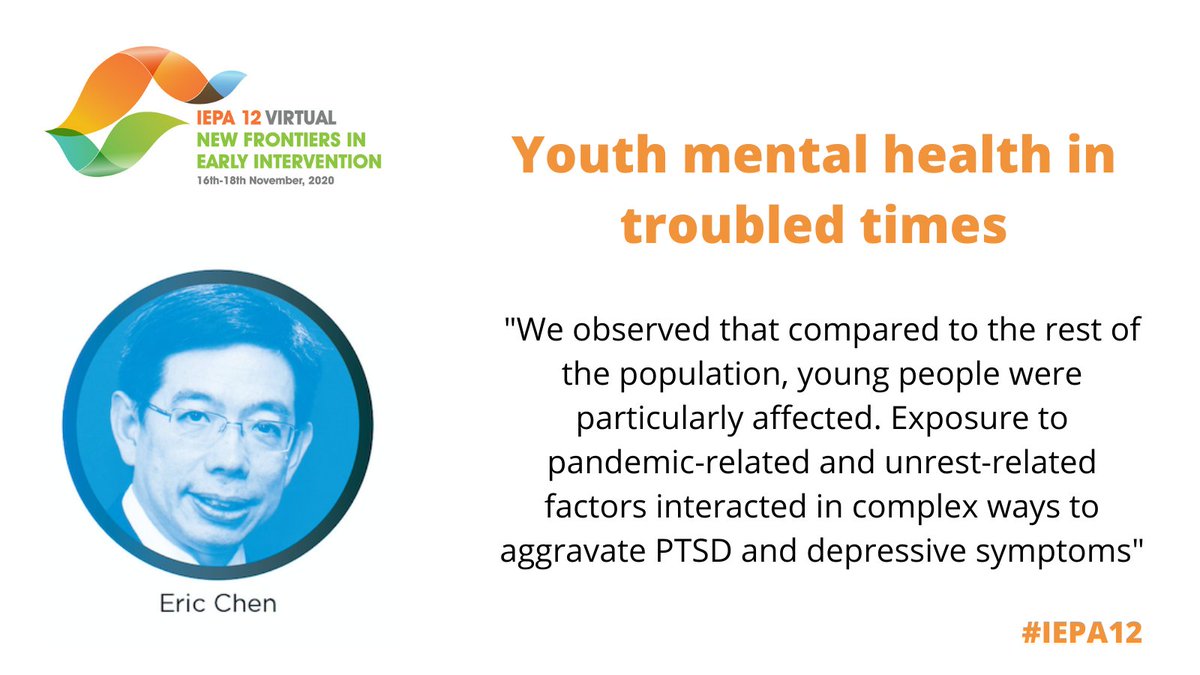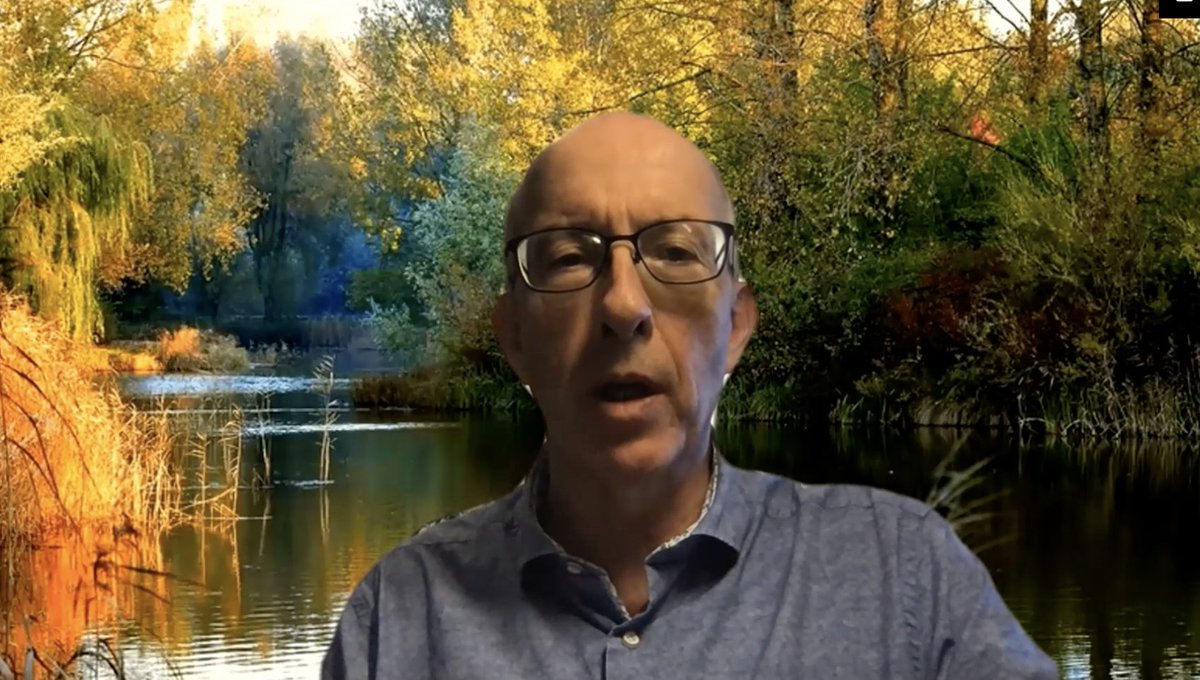
Our final speaker in this #IEPA12 session is Giovanni Salum @gsalumjr Associate Professor from the Universidade Federal do Rio Grande do Sul in Porto Alegre, Brazil #IEPA12
"Prevention & Early Intervention in Low & Middle-Income Countries: from Neuroscience to Public Health"
"Prevention & Early Intervention in Low & Middle-Income Countries: from Neuroscience to Public Health"

As a mid-career researcher, @gsalumjr was “always bothered by the local poverty, the mental illness epidemic in schools, the poor healthcare provision”. So Giovanni decided to leave research and try to make “some contributions to the city” #IEPA12
This was a major challenge because:
-Primary care (insufficient training, low coverage)
-Specialised care (very limited electronic records and EBM)
-Specialised emergencies (over capacity)
-Inpatient units
#IEPA12
-Primary care (insufficient training, low coverage)
-Specialised care (very limited electronic records and EBM)
-Specialised emergencies (over capacity)
-Inpatient units
#IEPA12

The Porto Alegre Mental Health Plan expanded community services, inpatient units, housing first, & addiction services, and also recommended objective criteria for each type of service, which services now use to manage transition of care #IEPA12 

Electronic health records were set up across the city for all of the services, to oversee patient management, referrals and transition of care #IEPA12
Lots of work was also done locally to fight stigma and promote mental health, which included working in schools. Mental health leaflets and videos were developed and sent to school staff and students #IEPA12 

Administrative work was also important - assessing service quality systematically and highlighting areas that required improvement #IEPA12
After 2 years @gsalumjr decided to return to the research world, but he found this very challenging, as he was now even more struck by the gaps between research and practice #IEPA12
He was therefore inspired to focus on research that was more relevant to frontline practice (e.g. National Census on Quality of Care) #IEPA12 
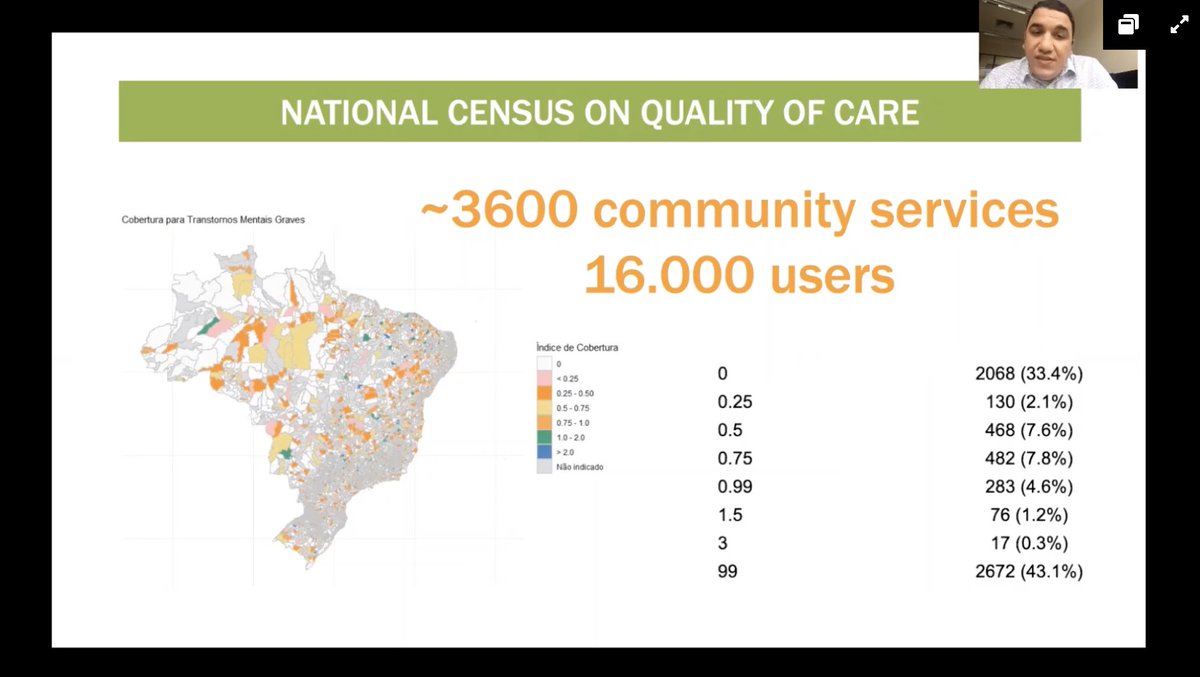
National brief telepsychotherapy trial - TELEPS COVID-19 offering online therapy to healthcare workers during the pandemic #IEPA12 

Tips for the adventurous from @gsalumjr at #IEPA12
-most mental health care impediments in LMIC are administrative/logistical
-bottom-up approaches essential for policy to impact positively on peoples’ lives
-combination of local & global initiatives should inform decisions
-most mental health care impediments in LMIC are administrative/logistical
-bottom-up approaches essential for policy to impact positively on peoples’ lives
-combination of local & global initiatives should inform decisions

Wonderful accessible talk at #IEPA12 by Giovanni Salum @gsalumjr
It's refreshing to see a mental health researcher who is inspired to go into the community and have an impact on the lives of real people. Something all scientists can learn from!
👏🏿👏🏽👏🏾
It's refreshing to see a mental health researcher who is inspired to go into the community and have an impact on the lives of real people. Something all scientists can learn from!
👏🏿👏🏽👏🏾
• • •
Missing some Tweet in this thread? You can try to
force a refresh





